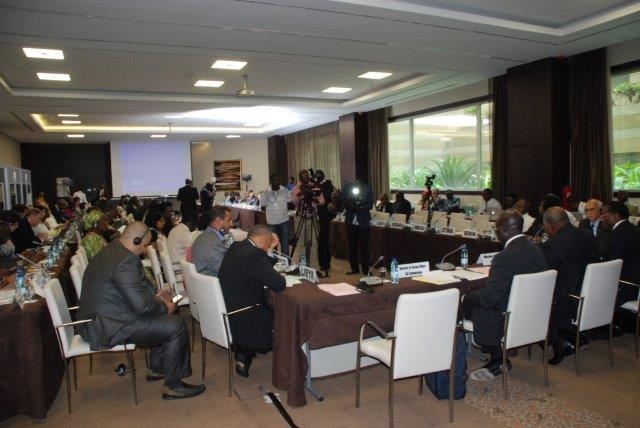Africa´s health challenges require concerted action from all stakeholders
 Luanda, 14 April 2014 - Health experts have begun a two day meeting in Luanda, Angola to discuss a range of issues aimed at improving the health of people living in the African Continent. The two-day meeting precedes the African Health Ministers meeting to be held from 16-17 April 2014 in Luanda. It is jointly organized by the African Union Commission (AUC), the World Health Organization (WHO) and the Government of Angola.
Luanda, 14 April 2014 - Health experts have begun a two day meeting in Luanda, Angola to discuss a range of issues aimed at improving the health of people living in the African Continent. The two-day meeting precedes the African Health Ministers meeting to be held from 16-17 April 2014 in Luanda. It is jointly organized by the African Union Commission (AUC), the World Health Organization (WHO) and the Government of Angola.
Welcoming the delegates, the Minister of Health of the Republic of Angola, Honorable Dr. José Van-Dúnem, noted that the health challenges that the African continent faced, including the high burden of disease, high maternal and child mortality rates, the circulation of falsified and counterfeit medicines as well as public health emergencies require concerted action from all stakeholders.
“You are expected to help the Ministers to understand how to tackle these problems and propose solutions to enable all Africans benefit from universal access to quality health care”, said Dr Van Dunem.
"Our response will not be adequate if we do not address the constraints related to lack of funding and human resources”, he added.
Africa constitutes only a little more than 10% of the world`s population, but it suffers from the largest burden of death and sickness mainly from communicable and non-communicable diseases. It is the continent with the highest rates of maternal and under-five deaths with many of its countries not on track to achieve the health Millennium Development Goals and targets.
In his address, the WHO Regional Director for Africa, Dr Luis Sambo observed that during the past decades, significant efforts have been made to improve the health and quality of life of African people. He noted the stronger collaboration between the African Union and the World Health Organization will enhance support to Governments in their endeavours to improve people´s health.
The Regional Director reminded delegates about some of the prevailing health challenges facing the Continent. These include the double burden of communicable and noncommunicable diseases, high maternal and child mortality due to weak health infrastructure capacity that affects both the coverage and quality of health care.
He said: “These are challenges that call for technical excellence, intersectoral collaboration and political leadership”.
Dr Sambo called on the experts to provide workable solutions that could help African countries move forward in order to make a difference in people´s health and attain global and African health targets.
In his remarks, the Director of Social Affairs of the African Union, Ambassador Olawale Maiyegun speaking on behalf of the Commissioner for Social Affairs of the African Union, Dr. Mustapha Kaloko, acknowledged that the presence of the delegates was a demonstration of their interest in and commitment to health matters in the Region.
The Ambassador reiterated that the AUC considers disease, not only as a health matter but a human development issue. He called on Member States to address the key health challenges related to maternal and child health, sexual and reproductive health, communicable and noncommunicable diseases, epidemics and emergencies, and health systems strengthening on the continent.
“Diseases have continued to hamper development in Africa and we need urgent concrete actions to address them”, he stressed.
More than 200 participants are attending the event. Among the issues on the agenda are: Universal Health Coverage in Africa, establishment of an African Medicines Agency, Non-communicable diseases in Africa, prevention of maternal and child mortality and establishment of an African Centre for Disease Control and Prevention.


